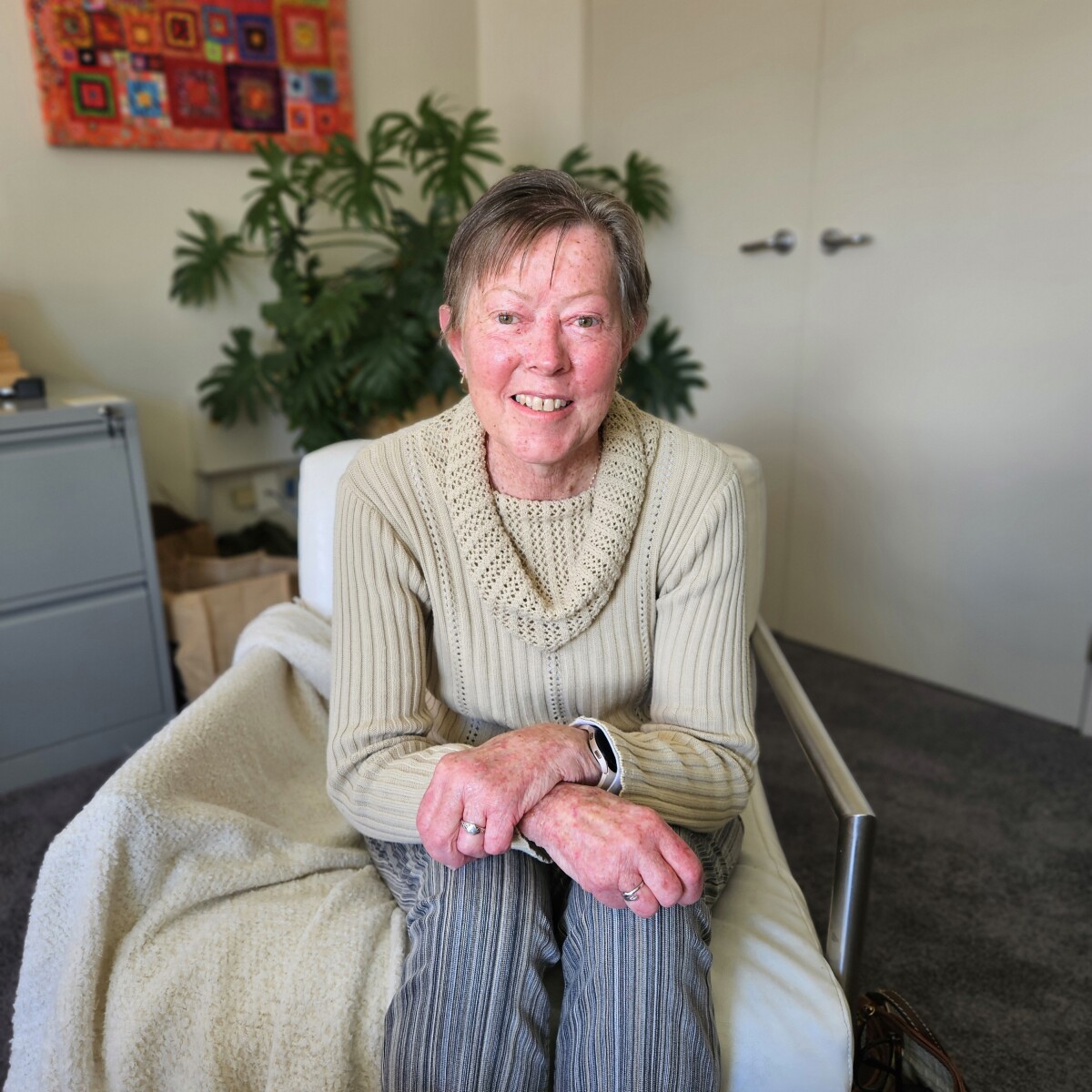When Colleen Roberts went to her GP about gallstones, a cancer diagnosis was far from front of mind. Although she had no symptoms, testing showed that Colleen had cancer in the lower part of her stomach.
Swift action soon followed – chemotherapy, followed by a partial gastrectomy, followed by more chemotherapy. By July 2022, Colleen was back at work and back to the busy life she knew.
“My initial cancer journey was aggressive,” remembers Colleen, “there was treatment and surgery so I just hunkered down. But once it was completed, I went back to my previous lifestyle. I had fantastic friends and family – I didn’t need further support.”
But in July 2023, the cancer returned. Colleen discovered she now had multiple abdominal tumours and any further treatment would be palliative. The news prompted Roberts and her husband to move back to Rotorua.
“I had a major lifestyle change. I gave up working to start a new life - it was my retirement, basically. Rotorua is where we were always going to come back to. We have the family here and my husband retired at the same time.”
The diagnosis meant that Colleen now needed to undergo long-term chemotherapy, treatment that would hopefully halt the cancer’s progression. The side effects were difficult, and Colleen admits that her physical and mental health took a beating.
“After a year of fortnightly treatment, I sort of hit the wall a little bit because the cumulative effects of chemotherapy started to hit. I got quite down. I was depressed and that’s not good for your health.
“It’s not obvious, these sorts of effects. A lot of people say ‘you’re looking well’ but you’re certainly not feeling it. I discussed taking a break from treatment with my oncologist but then I found out how it worked. It hits the cells and the treatment does its thing but then after two weeks, the cells start recovering so it was important to keep to the treatment schedule.”
Initially, Colleen says she stood back and didn’t look too much into what was going on. But as time went on, she realized that her way of looking at the future needed to change.
“I felt, with the prognosis, that I was dying of cancer but then I realized that I was actually living with chemo! The cancer was being dealt with through the treatment and so I had an epiphany – what can I do to support the treatment? What can I do to participate rather than being passive? I realized I didn’t know where to go for that information and that’s when I engaged with the Cancer Society.”
Colleen was connected with Claire Gower-James, a Cancer Society Navigator based in Rotorua. The support was, says Roberts, a gamechanger.
“Claire’s response was absolutely amazing in that her support was immediate. Just hearing me and being able to say ‘we’ve got this’. Everything she gave me was fantastic – the weekly walking group, the monthly support group, access to massages, the links to meditation, the reading materials. There were things specific to my cancer that I hadn’t accessed before.
“Emotional support is the hugest thing. Asking ‘what are you feeling?’ instead of ‘how are you feeling?’ gives others the information they need to help me. The cumulative effects of long-term treatment means I need to rest but I want to still be active and doing things.”
Colleen's desire to be active and connect with others led her to the local support group which she says helps give her purpose.
“There is an understanding there of how you’re feeling. Everybody is in a different place and going through different aspects, and it’s positive if you want to talk about those things. The effect on my wellbeing has been huge. It has turned everything around in my mind and reframed it all.”
Claire says that Colleen is an example of how the Cancer Society can help patients feel empowered on their cancer journey.
“It’s about demystifying the medical space so that people can make the best decisions for themselves and their whānau,” she says. “We help them open doors that might otherwise be shut and walk alongside them as they navigate the barriers of a cancer diagnosis. Unfortunately, the need is great in the Bay of Plenty. The reality is that cancer does not stop for Christmas and many, many people will be receiving a cancer diagnosis or treatment this December.”
Cancer affects 1 in 3 New Zealanders and modelling predicts that this rate will rise to 1 in 2 by 2040. Currently, New Zealand ranks lower in survivorship than other comparable high-income countries, but the situation is slowly improving thanks to advances in screening and the Government’s recent boost of advanced cancer treatments.
For Colleen, her cancer has been responding to treatment and she remains immensely grateful that it continues to be held at bay.
“I was seeing everything as negative, and that was putting a negative spin on the treatment and how it was working. With this support, it has flipped. I’m grateful, I’m trying things. Claire is very compassionate, very knowledgeable. From my point of view, this support is vital. This is life-affecting, life-changing support. Without it, it would be really hard for me to continue. It’s not just support – it is treatment.”
To refer yourself to the Cancer Society’s free services, please phone 0800 226 237 or click here.
The Cancer Society Waikato/Bay of Plenty is not directly government funded. If you would like to make a donation this Christmas, please click here.
"I realized I was actually living with chemo. The cancer was being dealt with through the treatment and so I had an epiphany and thought what can I do to support this treatment?

